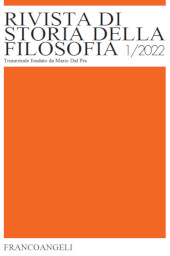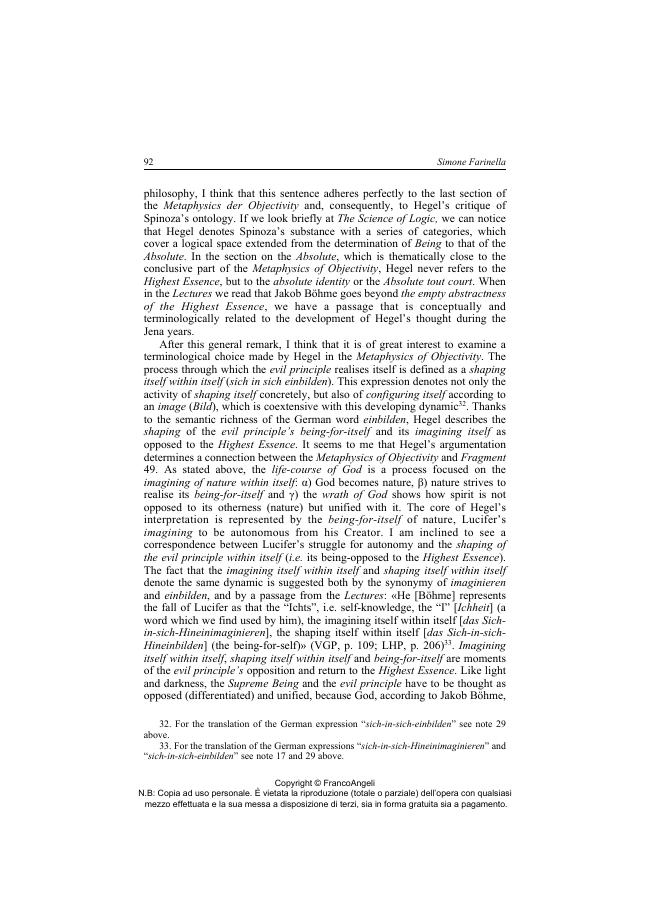Beyond the boundaries of representational thinking : Hegel's interpretation of Jakob Böhme during the Jena period
81-102 p.
The aim of this article is to investigate Hegel's reception of Jakob Böhme during the Jena period. In section 1, the Author analyses Fragment 46 and Fragment 49 of The Jena Wastebook, in which Hegel outlines a God's lifecourse inspired by Böhmian motives. For Hegel, the Böhmian theory of the wrath of God and fall of Lucifer expresses the opposition and reconciliation between nature (Lucifer) and spirit (God). The relational model here developed is that of an external negativity, which annihilates nature's beingforitself. In section 2, the Author shows Hegel's use of the same relational model in The Jena Logic and Metaphysics, assuming a Kantian and Böhmian terminology. The part on the Highest Essence explains the opposition between the good and evil principles and their necessary unity.
The introjection of the evil principle into the good principle is exactly what leads Hegel to investigate philosophically the myth of the fall. In sections 3 and 4, the emphasis is on the connection of this myth with the ideas of the wrath of God and fall of Lucifer: The Jena Logic and Metaphysics and The Phenomenology of Spirit consider Böhme's thought as a prefiguration of that selfrelational negativity which discloses the development of the thing itself. [Publisher's text].
-
Articles from the same issue (available individually)
-
Information
ISSN: 1972-5558
KEYWORDS
- Böhme, Hegel, negativity, representational thinking, speculation



